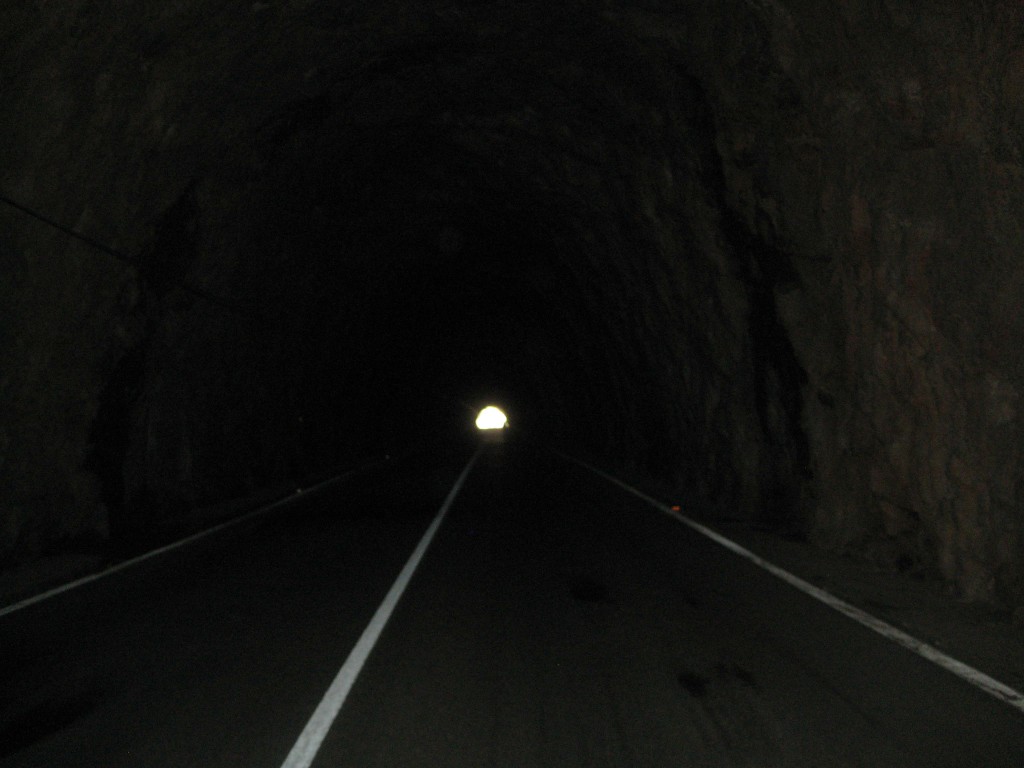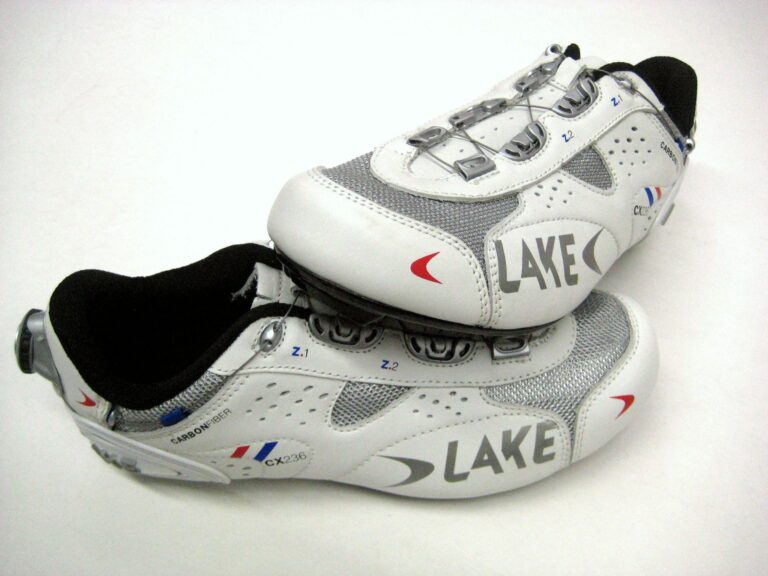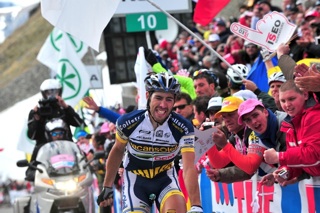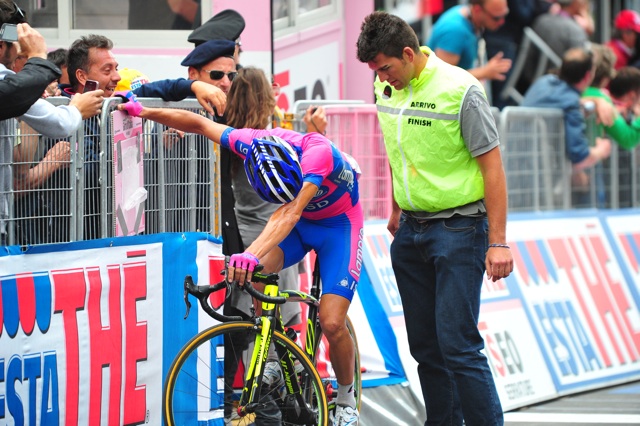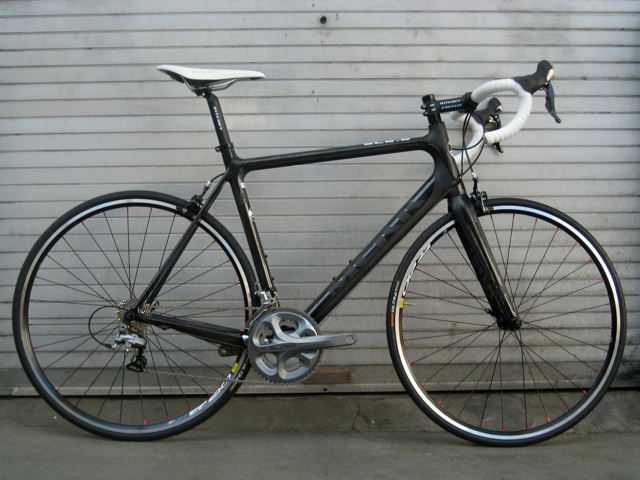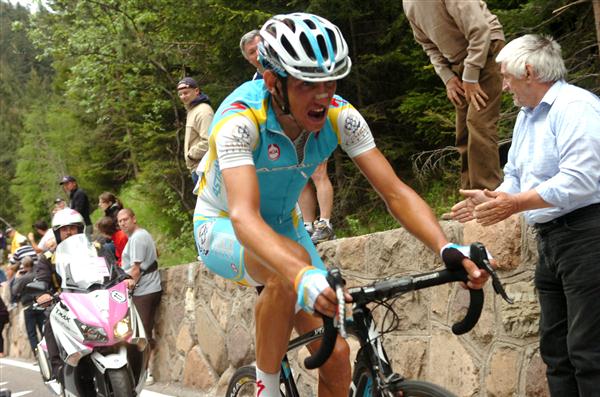It was less than a fortnight ago that I was in Majorca, the Mediterranean mecca for cyclists, where amateurs and professionals alike flock for warm weather training through winter and spring.
I was there to ride the Duva International Two-Day Sportive. Here are seven things I learnt about cycling while on the island, accompanied by some pictures which, with rain currently lashing against the windows at RCUK HQ, do little to quell thoughts that we get a pretty tough deal in the UK.
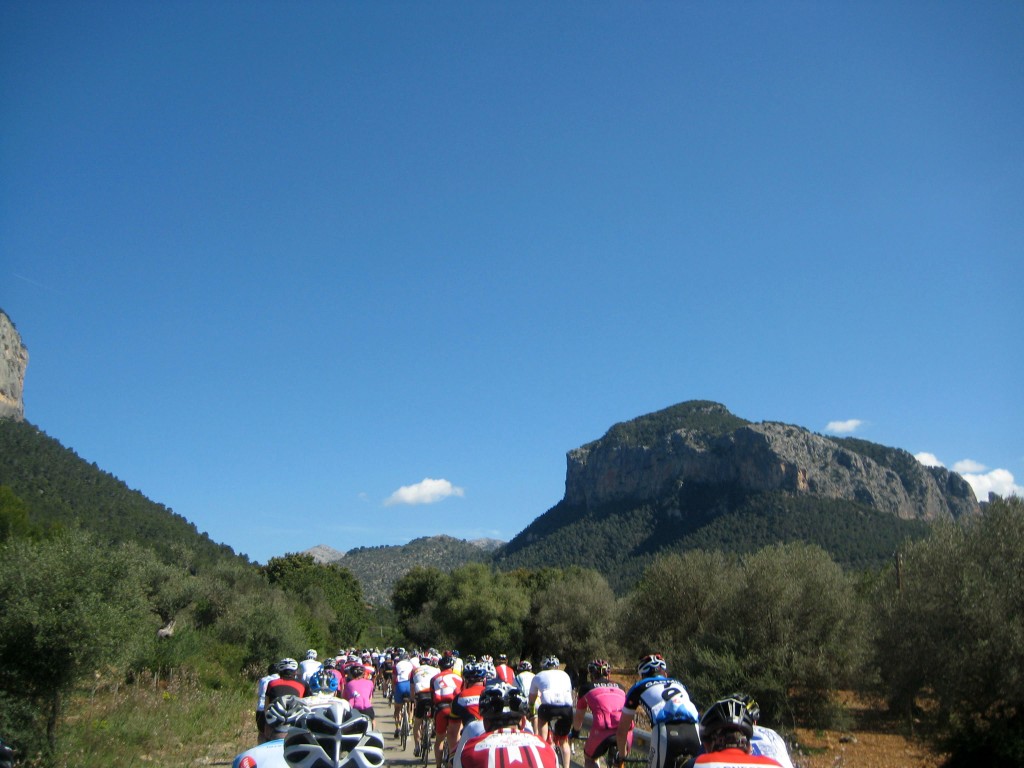
1. Social Spanish sportives
Most events, including the Duva International, enforce a rolling road closure so the already quiet roads of Majorca are yours and yours only to enjoy. The pace is set by a lead car to ensure the bunch stays together, and so the police outriders can effectively shut off the route. An average of approximately 16mph for both days (a 135km mountain route and a 95km coastal ride) means some riders are chomping at the bit behind the lead car but, once you get to the climbs the car continues on and it’s everyone man for himself. While many UK riders treat sportives as races, the Spain equivalent are social affairs. Enjoy the scenery, move around the bunch and chat to fellow riders and, when you get to one of the island’s many climbs, let loose and test yourself.
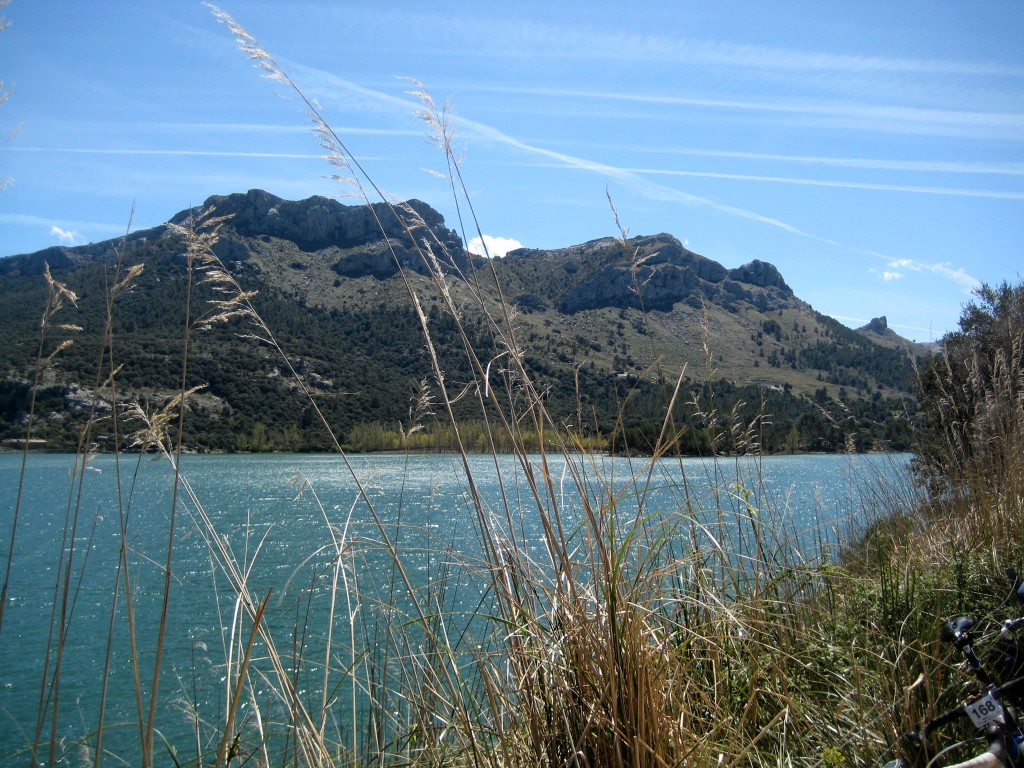
2. Sun soothes the cycling soul.
Winter’s a hard time to be a cyclist, but if you have any hope of racing competitively, riding sportives quickly, or completing that next two-wheeled challenge, then there’s little choice but to wrap up, man up and put in the miles. Summer seems a distant prospect, even now we’re into May, but a few days riding under warm sunshine in Majorca not only provides the opportunity to get in some much-needed miles, it also soothes the cycling soul – repressed and pent up with frustration after months of cold, wet rides – and provides renewed motivation for the rest of the year.

3. Majorca’s varied terrain is the perfect training ground.
It’s little surprise that many WorldTour teams of the professional peloton choose Majorca as their winter base (Team Sky spent much of December on the island and returned in January) – the island’s varied terrain is the perfect training ground. I was based at the Hotel Duva in Port de Pollenca on the northern tip of Majorca, from where thousands of kilometres of Tarmac unravel: head along the coast for a fast blast, ride into the centre of the island for leg-sapping rolling roads or venture into the mountains for a day of switchback roads and climbs up to 871m. And with a host of cafés with views like the above, a coffee stop provides the opportunity to bask in sunshine, rather than escape a sudden rain shower.
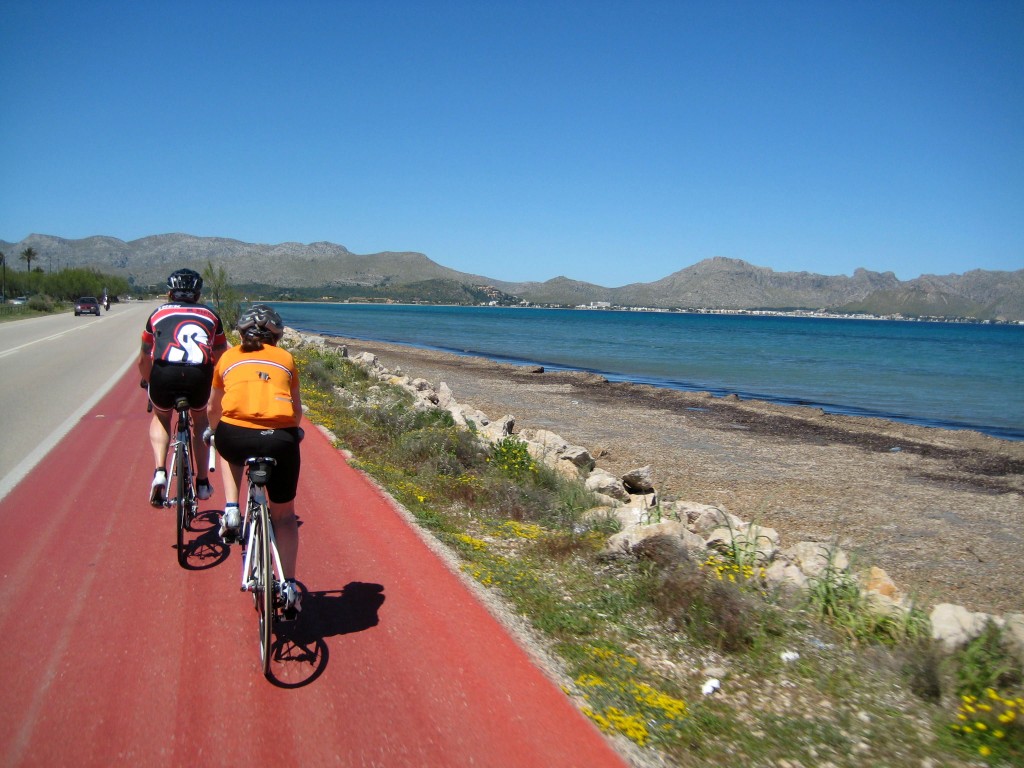
4. Smooth roads that beg to be ridden fast.
Majorca’s Tarmac is like riding on a billiard table. Wheels rolls up to speed quickly, aided by the smooth road below, rather than gripping to that rutted and laggy surface we’re so used to. Riding on predictably silky roads boosts confidence and allows you to concentrate on picking the fastest line through the sweeping corners of the super-fast Coll de Femianna, rather than watching for potholes. That said, the island’s Tarmac is not uniformly smooth, and some of the rural roads are comparable with Kent and Surrey’s pot-holed lanes, but it’s certainly more hit than miss. As for cycling infrastructure? Cars give riders a wide berth and cycle lanes on key routes are generous enough to ride three abreast, giving cyclists equal standing on the road.
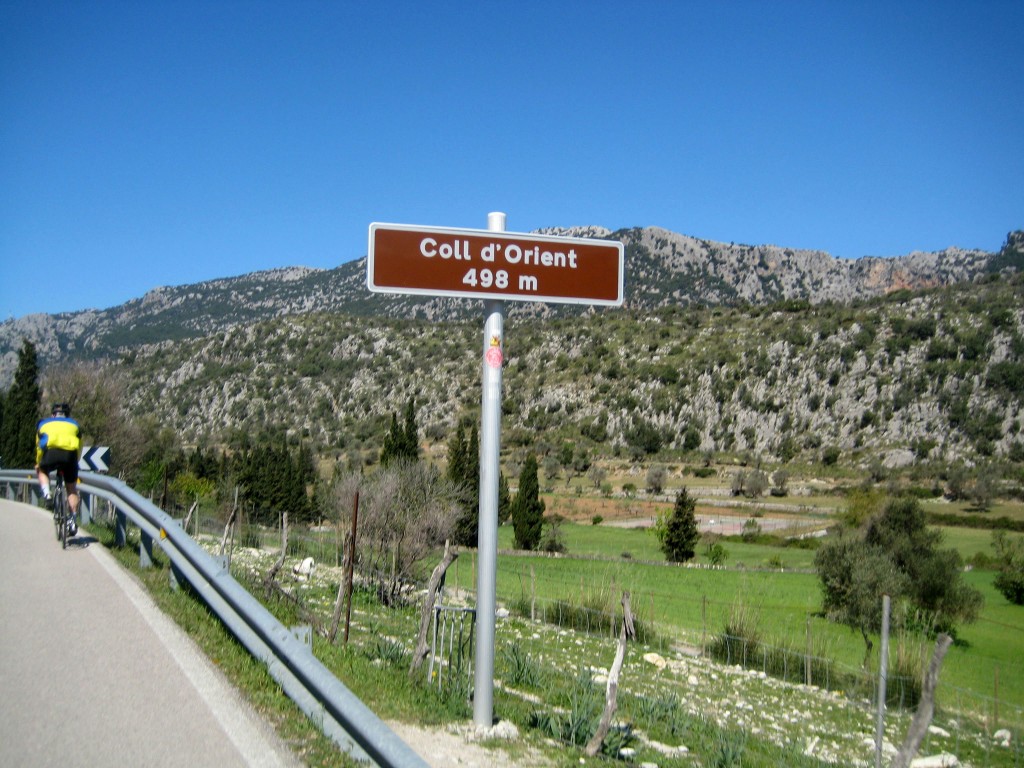
5. Cycling becomes the 9-5.
A training camp or cycling holiday means riding your bike becomes the 9-5. The office becomes a distant memory; instead it’s you and the road, with little distraction. Riding your bike becomes the day’s primary objective – every day – rather than fitting in a quick blast before work, cramming in a ride in fading light after office hours, or waiting for the weekend’s club run to get your legs turning. When your not on the bike in Majorca, everything revolves around the next ride: tweaking your bike, going for a swim, booking a massage – or, perhaps, enjoying a well-earned beer to round off a hard day’s work.
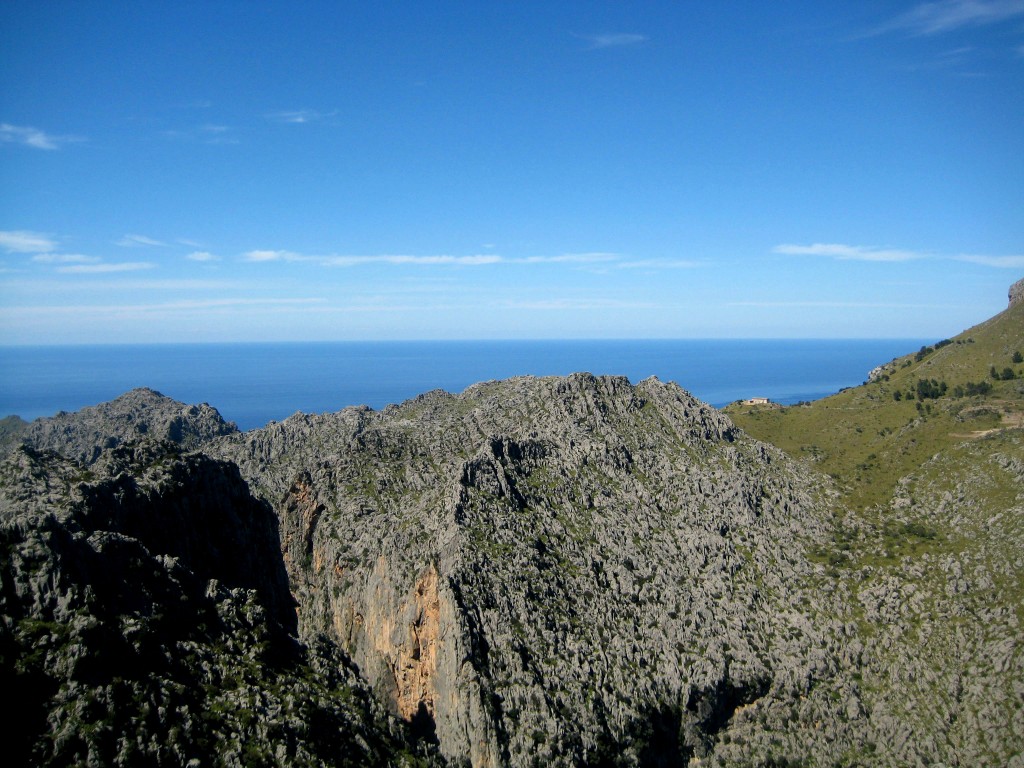
6. Climbing with a smile on your face, not through gritted teeth.
For what the UK’s climbs lack in length, they make up for in steepness. Climbing inevitably becomes a grind, with frequent out of the saddle efforts to tackle double-figure gradients. Majorca’s steady gradients (rarely nudging above six or seven per cent), on the other hand, offer the opportunity to select a gear and settle in for a sustained effort which, in the case of Puig Major, the longest climb on the island, means an hour’s climbing. Sure, it’s still painful, but the effort’s constant and (usually) well-judged. Plus, with views like those above to enjoy, there are far worse places to be riding your bike uphill…
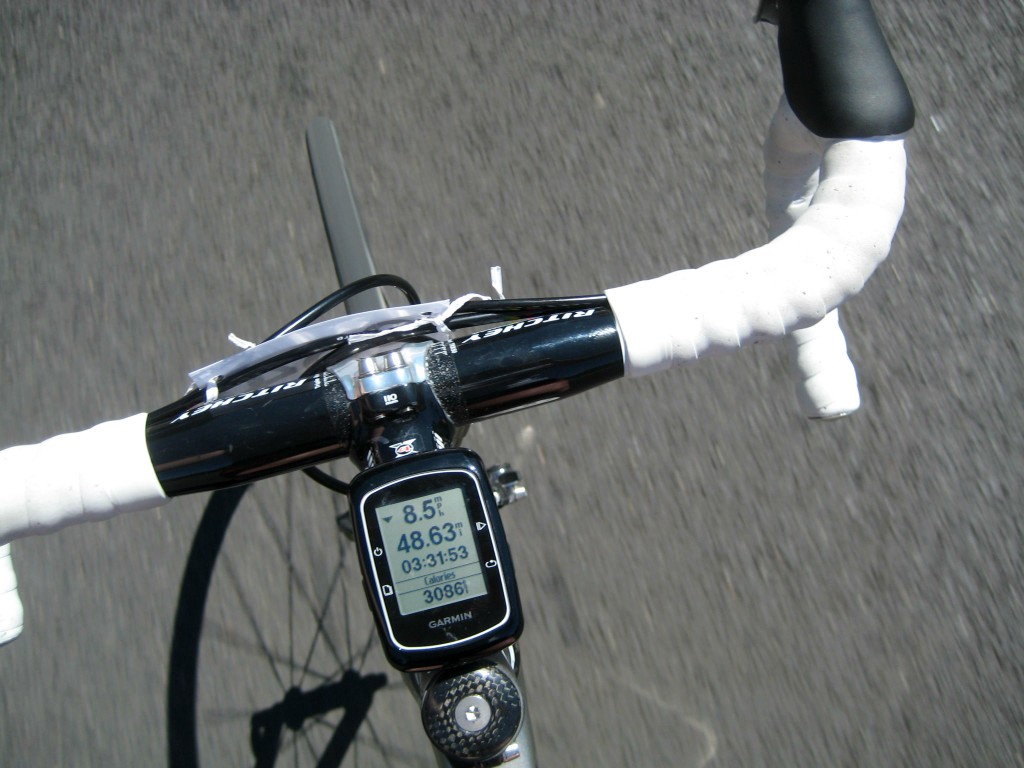
7. Don’t (mis)calculate a climb.
What the UK’s climbs do have in their favour is the carrot dangling at the top of the road. The summit is rarely out of sight, or in the south east at least, more than 10-15 minutes riding away. At 15km from the town of Soller to the Tunel de Monnaber, the Puig Major is comfortably the longest climb I’ve ridden. A sign marks the start of the climb so, with my Garmin Edge 200 set to show miles, and with 48 miles already ridden, I calculated that I’d summit the ascent with 56 on the clock. Time to settle in for a well-paced ride to the top, aiming to dip under the hour mark, I thought. Trouble is, my slapdash imperial to metric conversion left 56 miles showing on the Garmin and the Tunel de Monnaber nowhere in sight. The trouble with the Puig Major – or The Pig, as it’s known to most British riders – is that the climb doesn’t crest the mountain, with the Tunel de Monnaber taking cars and cyclists through it – and you don’t see the tunnel until you turn the final corner. For me, that meant another mile of uphill slog until the tunnel emerged. Still, with 58 minutes on the clock it was a job well done and, remember, there’s always light at the end of the tunnel…
